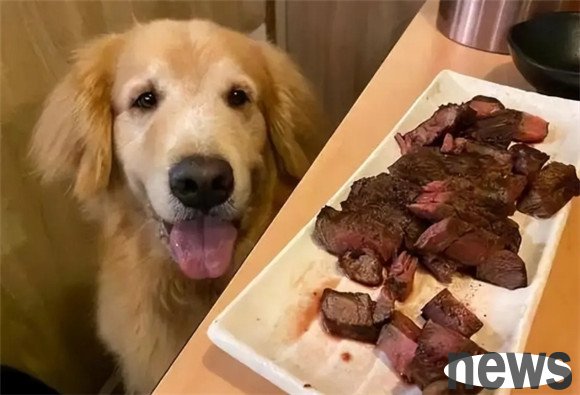These foods are the favorite "human food" that dogs eat the most
As owners of dogs, we all want to provide them with the most delicious and healthiest foods to make them happy and satisfy. In fact, there are some foods that are the favorites of dogs, and it would be a pity if you don’t know it yet!
1. Chicken
Chicken is a high-quality protein source. For dogs, it is not only delicious, but also has nutritional value. Whether it’s cooked chicken breast or chicken leg meat, dogs usually love it very much. Chicken has a low fat content and will not put too much burden on the dog's body.

2. Sweet potatoes
Feeding dogs appropriate amounts of cooked sweet potatoes will help enhance their immunity and maintain intestinal health. However, when feeding sweet potatoes, the following points must be paid attention to to ensure the best results: the sweet potatoes should be cut into small pieces and cooked; the feeding amount should be moderate. Take 5 kilograms of dogs as an example, the sweet potatoes should not be fed more than 20 grams per day. Remember, over-feeding of sweet potatoes may cause indigestion in dogs.
3. Cooked eggs
In the dog's diet, cooked eggs are an excellent nutritional supplement. The cooked egg whites are soft and the egg yolks are rich, which not only meets the dog's demand for protein, but also the golden little sun-like egg yolks are also a delicious dish in their eyes.
But remember to remove the eggshells and salt, because raw eggs may contain salmonella, which is harmful to the health of the dog.
4. Pumpkin
Pumpkin is a nutritious ingredient, especially suitable for dogs. The cellulose and vitamins rich in melons are very helpful for dogs' stomach and intestinal health. These nutrients can promote gastrointestinal motility in dogs, help digestion, and reduce gastrointestinal problems such as constipation.
Cook the pumpkin and mash it into a paste. This treatment method is very suitable for dogs' eating habits. Such pumpkin puree can be mixed with dog food to feed, allowing dogs to enjoy delicious food while also ingesting rich nutrition.
Pumpkin puree can also be used as a snack for dogs, allowing dogs to eat when they are hungry, which can not only satisfy their cravings but also replenish energy.
5. Carrots
As a common vegetable, carrots are rich in vitamin A, which is very beneficial to protecting dogs' eyes and can also help dogs beautify their hair. This natural vegetable snack has a crispy texture and is loved by many dogs, and they often rejoice in it.
6. Beef
Beef is a meat with extremely high nutritional value, rich in protein, iron, zinc and other nutrients, and has a positive effect on enhancing dogs' muscle strength and immunity. Feed the cooked lean beef in moderation, cut into small pieces or strips for the dog to enjoy.
However, beef is relatively expensive and should not be used as a daily staple food. Occasionally improving your dog’s diet will make them very excited.

7. Yogurt
For most dogs, yogurt is undoubtedly the best delicious, and its sour and sweet taste makes people unable to stop. Yogurt is not only delicious, but also rich in probiotics, which helps regulate the intestinal function of the dog and promotes bowel movements.
So the owner can occasionally enjoy yogurt for the dog as a special treatment. Of course, if you drink yogurt yourself, you can also let your dog taste the yogurt lid.
8. Jerky
Jerky because of its rich meaty aroma, it can effectively attract dogs' attention and arouse their appetite. At the same time, jerky can be used as a tool for dogs to exercise their teeth and bite strength when chewing in their mouths, allowing them to enjoy the fun of chewing.
Although jerky is one of the ideal snacks for dogs, the amount of feeding needs to be controlled to prevent excessive intake from causing obesity.
These foods not only make dogs eat happily and satisfied, but also provide them with rich nutrition to help them grow up healthily. However, each food has an appropriate feeding amount and method, so when feeding these delicious dishes to your dog, you must pay attention to controlling the amount and make corresponding adjustments based on the specific situation of the dog.




